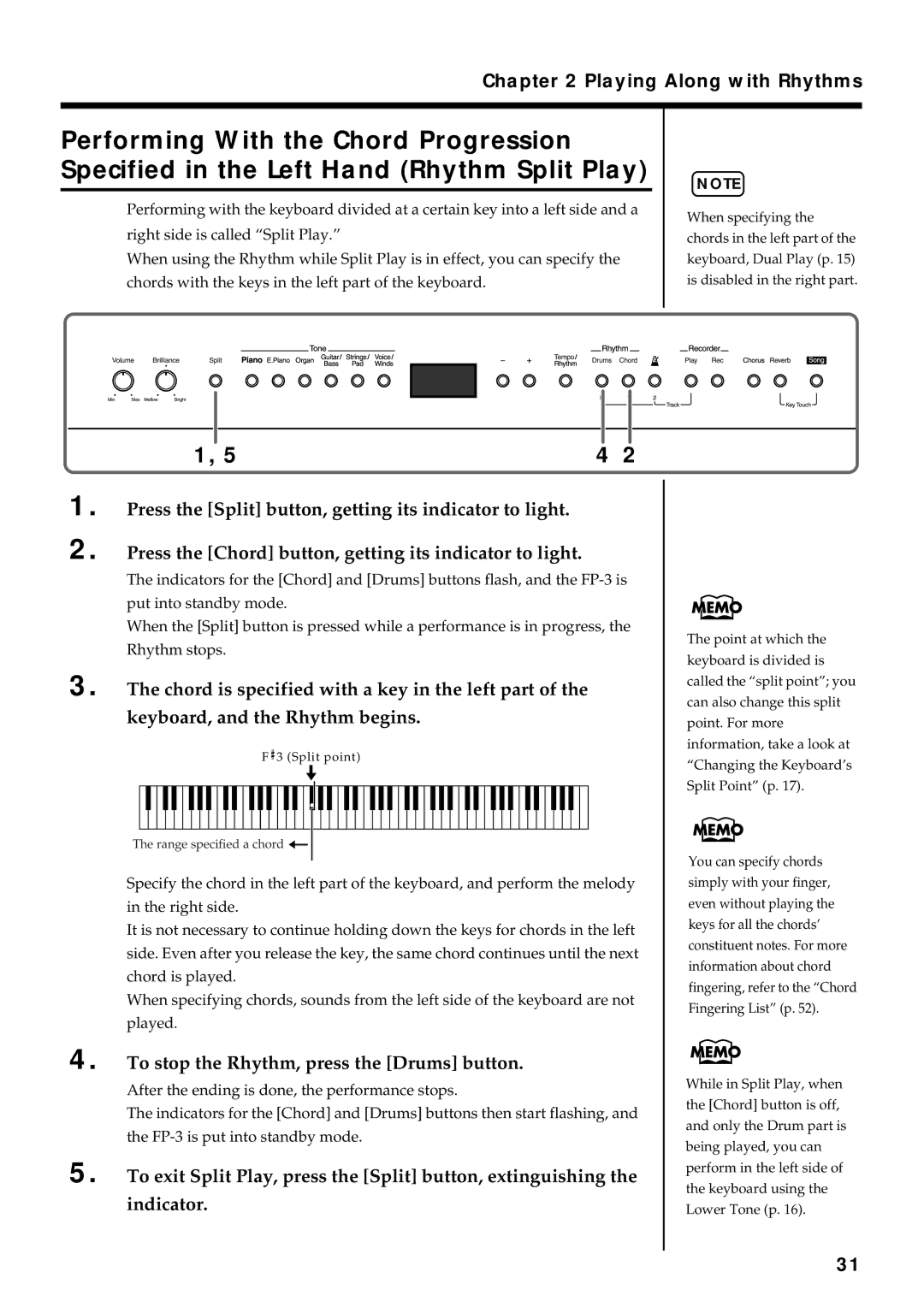
Chapter 2 Playing Along with Rhythms
Performing With the Chord Progression Specified in the Left Hand (Rhythm Split Play)
Performing with the keyboard divided at a certain key into a left side and a right side is called “Split Play.”
When using the Rhythm while Split Play is in effect, you can specify the chords with the keys in the left part of the keyboard.
NOTE
When specifying the chords in the left part of the keyboard, Dual Play (p. 15) is disabled in the right part.
1.
2.
3.
4.
5.
1, 5 | 4 2 |
Press the [Split] button, getting its indicator to light.
Press the [Chord] button, getting its indicator to light.
The indicators for the [Chord] and [Drums] buttons flash, and the
When the [Split] button is pressed while a performance is in progress, the Rhythm stops.
The chord is specified with a key in the left part of the
keyboard, and the Rhythm begins.
F ![]() 3 (Split point)
3 (Split point)
The range specified a chord ![]()
Specify the chord in the left part of the keyboard, and perform the melody in the right side.
It is not necessary to continue holding down the keys for chords in the left side. Even after you release the key, the same chord continues until the next chord is played.
When specifying chords, sounds from the left side of the keyboard are not played.
To stop the Rhythm, press the [Drums] button.
After the ending is done, the performance stops.
The indicators for the [Chord] and [Drums] buttons then start flashing, and the
To exit Split Play, press the [Split] button, extinguishing the
indicator.
The point at which the keyboard is divided is called the “split point”; you can also change this split point. For more information, take a look at “Changing the Keyboard’s Split Point” (p. 17).
You can specify chords simply with your finger, even without playing the keys for all the chords’ constituent notes. For more information about chord fingering, refer to the “Chord Fingering List” (p. 52).
While in Split Play, when the [Chord] button is off, and only the Drum part is being played, you can perform in the left side of the keyboard using the Lower Tone (p. 16).
31
